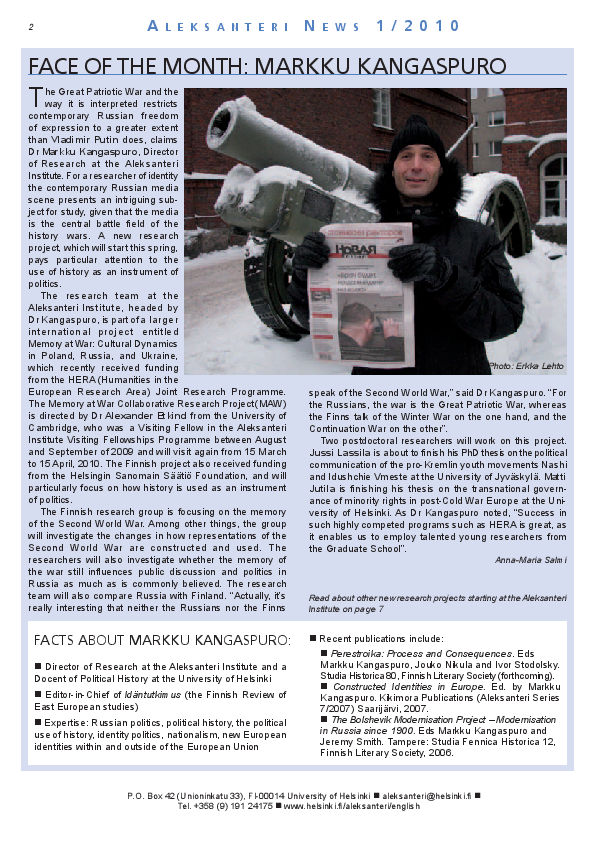Markku Kangaspuro, Director of Research, was just starting to head a project within a larger international Memory at War collaborative research project when interviewed for Aleksanteri News 1/2010. The Finnish research group focusing on the memory of the Second World War kept busy not only Markku but employed also Jussi Lassila and Matti Jutila, both of them finishing their theses at the time.
A lot has happened and much has changed during the 20 years of Aleksanteri. We asked Markku to analyse Institute’s strengths: what has kept it thriving throughout its history?
“Definitely one of the cornerstones of our work at the Institute has been strict academic approach to our research topics and consistent research programme. With this backbone, we have been able to develop the Institute and give quite significant impact on public discussion. Valuable recognition for our academic achievements and consistency was the funding of The Finnish Centre of Excellence in Russian Studies – Choices of Russian Modernisation by the Academy of Finland for years 2012-2017. The second, although not the least, strength is the great work community consisted of nice persons and excellent researchers and experts. As a result, we have been quite successful establishing a wide variety of research projects based on competed funding.”
How about your own research interests and projects: what keeps you most motivated in your work today?
“Russia is never boring: it changes all the time, unpredictably. From the cultural perspective, it is a really interesting and rich country. Although at the same time, it sometimes comes to my mind that life would be much easier if I studied something else to which our domestic attitude would not be so emotional. My research path has taken me somehow back to my dissertation’s topics: nationalism and identity studies. The rising wave of nationalism in Russia and Europe, and the recent tension between Russia and the West have made these themes topical. One of my longstanding research projects is the political use and misuse of history in Russia and in particular interpretations of the Second World War and Stalin’s role in the history. In this context, the Victory Day commemoration and changes in its political content are interesting questions. The second subject is Russian concept of the strong state: what kind of interpretations it produces and what consequences it has in society. I am also leading the Russian Media Lab project concerning the freedom of media in the economic, cultural and political context. All these three projects intertwine with the CoE to which I also give my contribution. All in all, Russia as a research subject and cooperation with great colleagues and research teams keep me not only motivated but also busy.”
